15 Times Asian Actors Were Nominated for Tony Awards
- CJ Norris
- Jun 2
- 6 min read
“The American dream belongs to all of us.”― Kamala Harris
Every year, the month of May is observed as Asian-American/Pacific Islander (AAPI) Heritage Month. This prompted me to look into the history of AAPI Broadway actors and the Tony Awards.
Unsurprisingly, there has been very little representation to date. But this year, for the 78th edition of the Tony's—the top level of honour in American theatre—there are several actors of Asian heritage nominated. Among them are TV's Daniel Dae Kim (Lost) and Darren Criss (Glee), as well as pop music's Nicole Scherzinger (The Pussycat Dolls).
This has been made possible due to an unusual amount of AAPI representation on Broadway this season, with shows like Yellow Face and Maybe Happy Ending. Will this influx of representation become the new standard on 'The Great White Way' (perhaps an unironic nickname for New York City's theatre district)? For now, let's dive into the history of Asian representation on Broadway leading up to its biggest night of the year.

A Cultural Monopoly
The theatre has a guilty past of overlooking people of colour. The fact that theatre as an art form began in Europe is likely a major factor in its predominantly white history. But even in modern North America, the evolution of that industry has been slow to change. This is largely tied to greater societal implications permeating the world of art and entertainment. The TV and film industry has evolved more quickly to increase diversity, but the theatre has clung to outdated traditions far longer. Why?
Possibly gatekeepers trying to protect ‘their’ art form
Maybe other cultures have taken longer to ‘buy in’
The slower pace of theatre creation and production
The real answer is probably a combination of these and other reasons. But by the 21st century, methods and social integration had caught up, in theory, and we have started to see more actors of colour on the same stages as caucasian folks. However, until very recently, the majority of POC were just filling ensemble spots. You might have seen one ‘token’ non-white performer in a supporting role.
A good example is Mean Girls. The original Broadway production (2018) kept the cast very accurate to the look of the 2004 movie that the public would inevitably compare it to. Everyone except one principal actor had the pale skin and European features you’d expect for suburban Illinois. That token ‘diversity hire’ was Korean-American Ashley Park as Gretchen Weiners, who would receive a Tony nomination for Best Supporting Actress in a Musical.

When Park and other founding cast members finished their contracts, the casting team kept the same formula, with Krystina Alabado (of Mexican and Lebanese descent) taking over for Park, and Renée Rapp (a white, blonde actress) becoming the new Regina George.
The Great Reset of 2020
We all know how much the COVID-19 pandemic shook up the world. Nobody sees the COVID crisis as a good thing, but there is some good that came from this sort of ‘hard reset’. Every industry had to pause and reconfigure how operations would move forward if and when they were able.
This highly charged time in history coincided with a laundry list of social controversies—many surrounding racial tensions (i.e. the string police brutality incidents resulting in the deaths of many Black Americans.)
Luckily, some arts leaders took these events as a cue to lead by example, putting more ethnic minorities in the spotlight and employing a colour-blind approach to casting. A precedent that was set pre-pandemic by Lin-Manuel Miranda’s Hamilton. Not all casting teams have adopted this principle, but enough to get the ‘ball of industry change’ rolling. For example, Black actress Adrienne Warren is currently making waves, starring as Cathy in The Last Five Years on Broadway—a role traditionally played by a white or white-passing woman.

In the last few years, we have also seen some monumental productions that put Asian cultures centre stage:
K-Pop (Tony-nominated 2022)
Here Lies Love (Tony-nominated 2024)
Yellow Face (Tony-nominated 2025)
A Season Full of Filipinos!
Aside from these shows that specifically highlight Asian cultures, the 2024-2025 Broadway season has shown an unprecedented rate of diverse representation—including AAPI actors in roles that both do and don’t require a specific ethnicity. Particularly those of Filipino descent. Broadway legend Lea Salonga highlighted this on Instagram (you might know Lea as the voice of Jasmine in Disney’s Aladdin and Mulan.)
Refreshingly, the 2025 Tony nominations reflect this increase of multiculturalism—specifically with actors of Asian descent. There is still a long way to go, as you’ll see evident in some of the gaps in the following list (the first Tony awards were in 1947, yet the first time an Asian actor was nominated was 1988). But it’s important to celebrate the wins along the way.
Here is a list of the 15 (yes, only 15) times in history that actors of Asian heritage were nominated for Tony Awards.
BD Wong – 1988
Category: Best Performance by a Featured Actor in a Play (Won)
Role/Show: Song Liling in M. Butterfly
Winner
First Asian to win a Tony Award
AAPI Heritage: Chinese
BD Wong and John Lithgow in M. Butterfly
Lea Salonga – 1991
Category: Best Performance by a Leading Actress in a Musical
Role/Show: Kim in Miss Saigon
Winner
First Asian actress to win a Tony Award
AAPI Heritage: Filipina
Lea Salonga in the original Broadway production of Miss Saigon.
June Angela – 1991
Category: Best Performance by a Leading Actress in a Musical
Role/Show: Lady Mariko in Shōgun: The Musical
AAPI Heritage: Japanese
June Angela in Shōgun
Lou Diamond Phillips – 1996
Category: Best Performance by a Leading Actor in a Musical
Role/Show: King Mongkut of Siam in The King and I
AAPI Heritage: Filipino
Lou Diamond Phillips in The King and I (1996 Revival)
Ken Watanabe – 2015
Category: Best Performance by a Leading Actor in a Musical
Role/Show: King Mongkut of Siam in The King and I
First Japanese actor to be nominated in this category.
AAPI Heritage: Japanese
Ken Watanabe and Kelli O'Hara in The King and I (2015 Revival)
Ruthie Ann Miles – 2015
Category: Best Performance by a Featured Actress in a Musical
Role/Show: Lady Thiang in The King and I
Winner
First Asian to win in this category
AAPI Heritage: Korean
Ruthie Ann Miles in The King and I (2015 Revival)
Phillipa Soo – 2016
Category: Best Performance by a Leading Actress in a Musical
Role/Show: Eliza Hamilton in Hamilton
AAPI Heritage: Chinese
Phillipa Soo in Hamilton
Eva Noblezada – 2016
Category: Best Performance by a Leading Actress in a Musical
Role/Show: Kim in Miss Saigon
Two Asian actresses nominated in the same category, the same year
AAPI Heritage: Filipina
Eva Noblezada in Miss Saigon (2016 Revival)
Ashley Park – 2018
Category: Best Performance by a Featured Actress in a Musical
Role/Show: Gretchen Wieners in Mean Girls
AAPI Heritage: Korean
Ashley Park as Gretchen Weiners in Mean Girls
Eva Noblezada – 2019
Category: Best Performance by a Leading Actress in a Musical
Role/Show: Eurydice in Hadestown
AAPI Heritage: Filipina
Eva Noblezada with her on stage and real-life romantic partner Reeve Carney
Daniel Dae Kim – 2025
Category: Best Performance by a Leading Actor in a Play
Role/Show: DHH in Yellow Face
First Asian to be nominated in this category
AAPI Heritage: Korean

Daniel Dae Kim (left) in Yellow Face
Francis Jue – 2025
Category: Best Performance by a Featured Actor in a Play
Role/Show: HYH/Others in Yellow Face
Heritage: Chinese

Conrad Ricamora – 2025
Category: Best Performance by a Featured Actor in a Play
Role/Show: Mary’s Husband in Oh, Mary!
AAPI Heritage: Filipino

Darren Criss – 2025
Category: Best Performance by a Leading Actor in a Musical
Role/Show: Oliver in Maybe Happy Ending
AAPI Heritage: Filipino

Nicole Scherzinger – 2025
Category: Best Performance by a Leading Actress in a Musical
Role/Show: Norma Desmond in Sunset Boulevard
Broadway Debut
AAPI Heritage: Filipina/Hawaiian









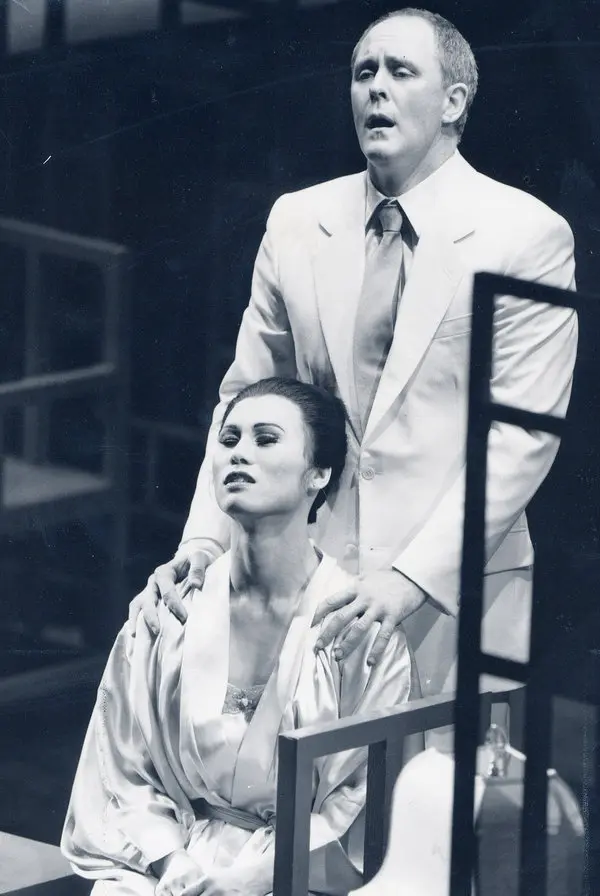


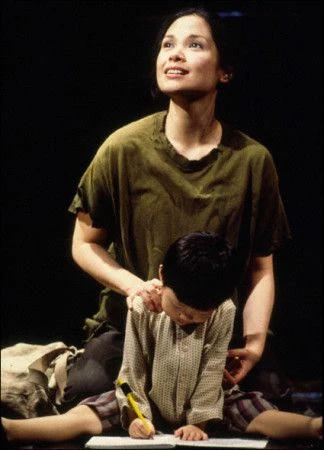



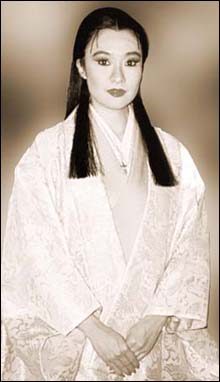

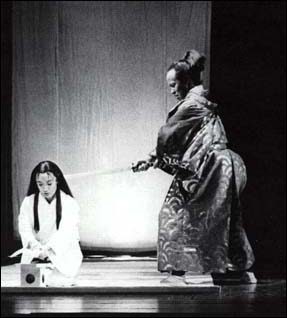



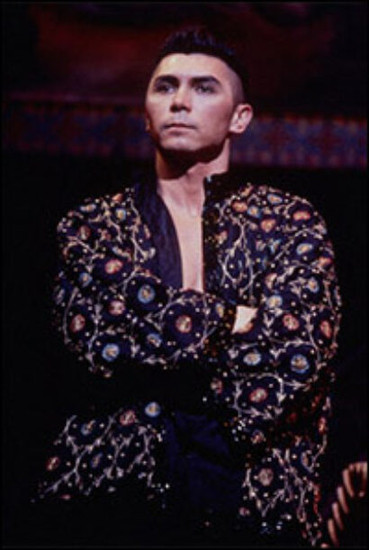





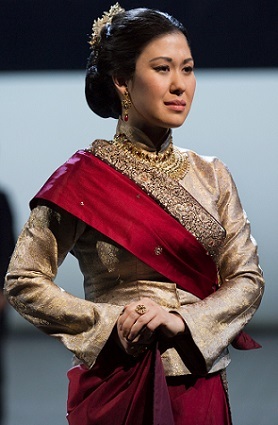
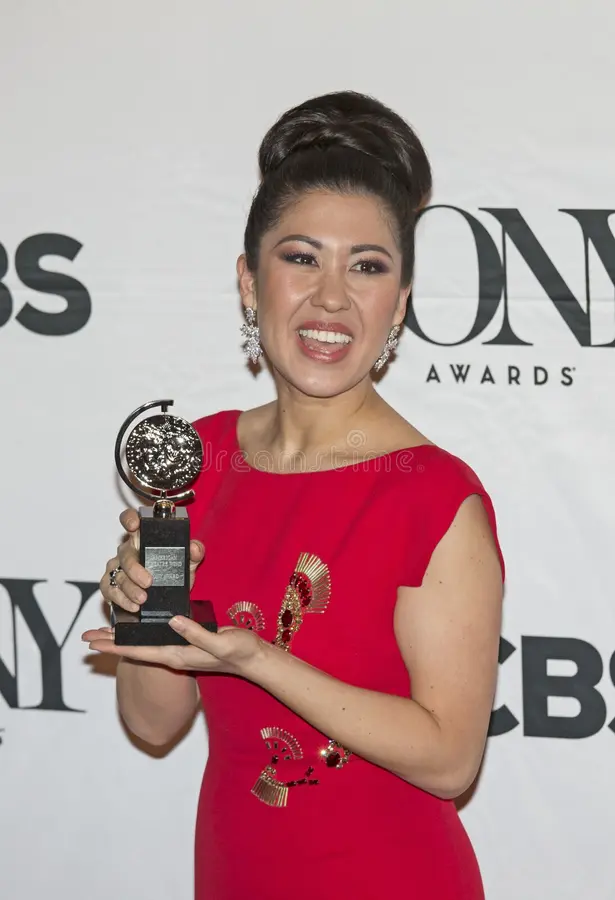








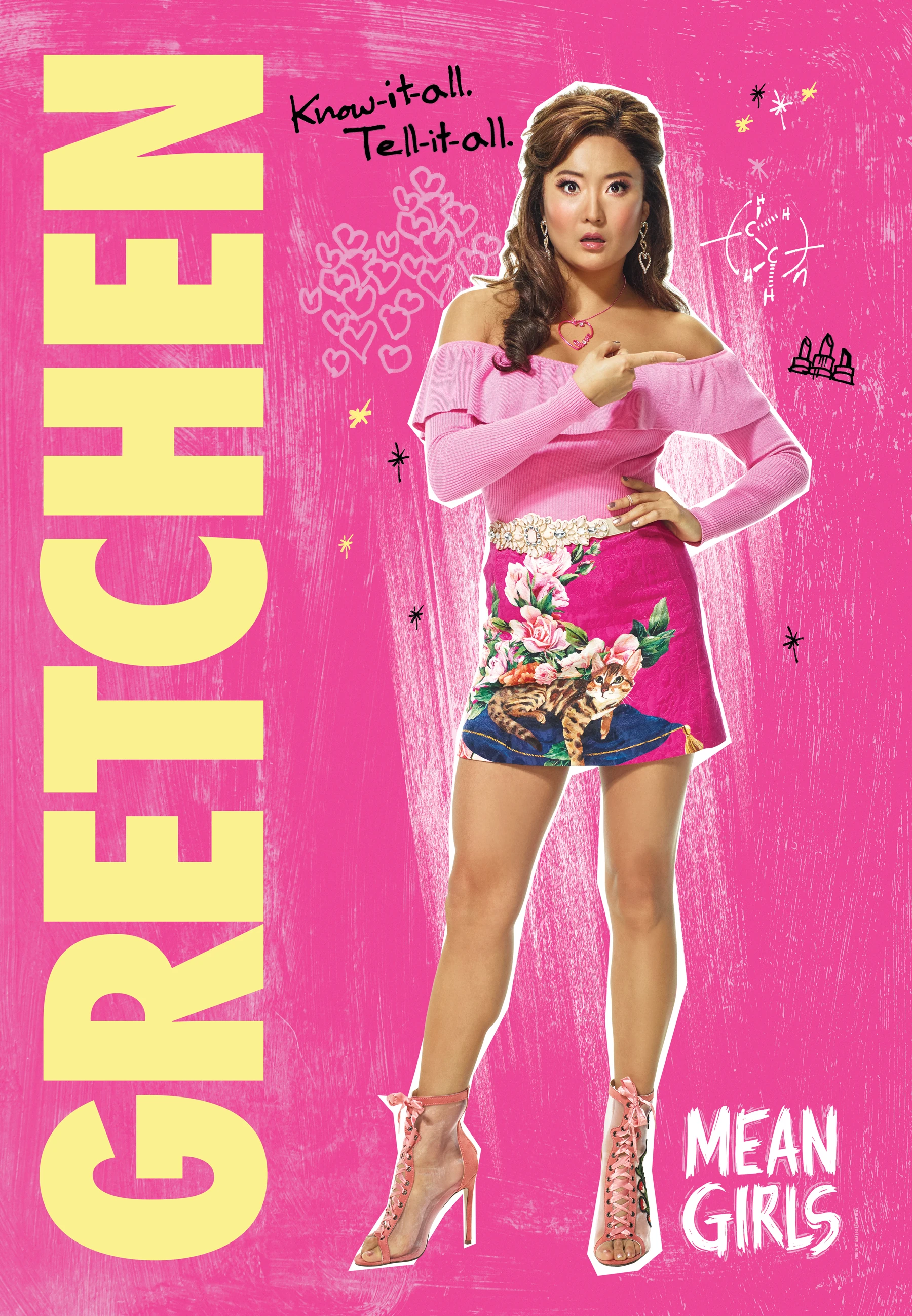

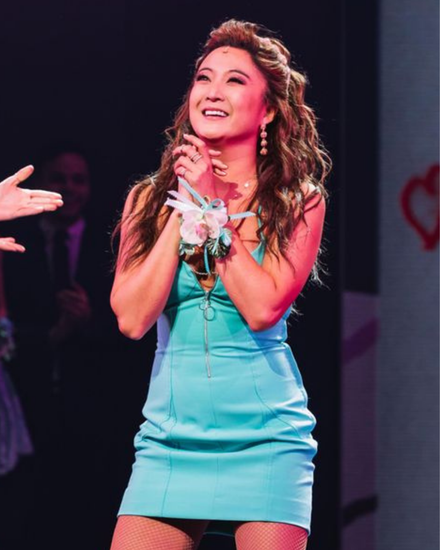







Comments